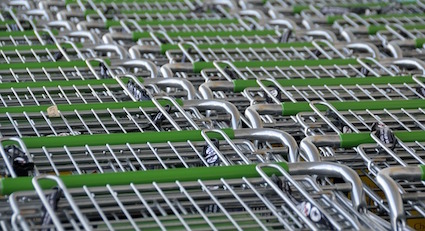Walmart is poised to bring a boatload of robots to their stores. According to the Wall Street Journal, Americas largest employer will deploy 1,500 floor-cleaning robots, 1,200 sorting robots, 900 pickup towers, and 300 automated shelf-scanners across at least 300 stores.
Automation in Walmart stores is nothing new, but the addition of these new robots suggests that the retailer is testing the waters to see just how far they can take automation. It’s easy to see why anyone would want to automate as much as possible when you consider the benefits of automation.
A spokesperson for Walmart explained, “The idea is that leaning into the future, associates will be able to have more satisfying jobs as retail continues to change.” The notion that robots result in more fulfilling work for humans is common in discussions about automation, but is it really happening?
Will adding more robots really make workers happier?
The idea that robots can make workers happier is based on the logical assumption that increased automation frees up employees to do more meaningful work. The people who find pleasure, purpose, or joy in scrubbing floors, checking inventory, and moving boxes are few and far between, right? If you can get robots to do the menial and tedious tasks, then human workers can do the fun and rewarding stuff like interacting with people and helping customers.
Today, a trip to Walmart can involve little to no interaction with other people. You can order groceries online, and someone will load them for you while you wait in your car. You can slip into the store, grab a bar of soap and a box of ice cream, and breeze through the automated checkout without ever speaking to another human being.
Sure, you might see a handful of employees collecting groceries or stocking shelves who offer a forced “Hello”. However, you don’t see hordes of workers frantically sweeping floors or checking inventory, champing at the bit to lend you a hand and wishing that there was a robot to help them out so they could fulfill their lifelong dream of helping you find where they keep the applesauce.
If robots do the dirty work, what will humans do?
In theory, increased automation frees up time for meaningful and worthwhile types of work, but we aren’t seeing this quite yet. We’re seeing new automation introduced faster than we’re seeing a change in retail, or those meaningful new jobs. So what are those employees who aren’t cleaning floors, checking inventory, or scanning items a the register supposed to do in the meantime?
Some of them are now self-checkout supervisors who hover around around trying to prevent shoplifting. Others are on-call to assist the robots that hit roadblocks trying to do things that human workers once did. Then there are those who have to find new jobs that have yet to be automated.
Automation allows humans to avoid the dirty, unsafe, and unpleasant work. It might increase the quality of work in grocery stores, but it might also reduce the number of jobs available.
